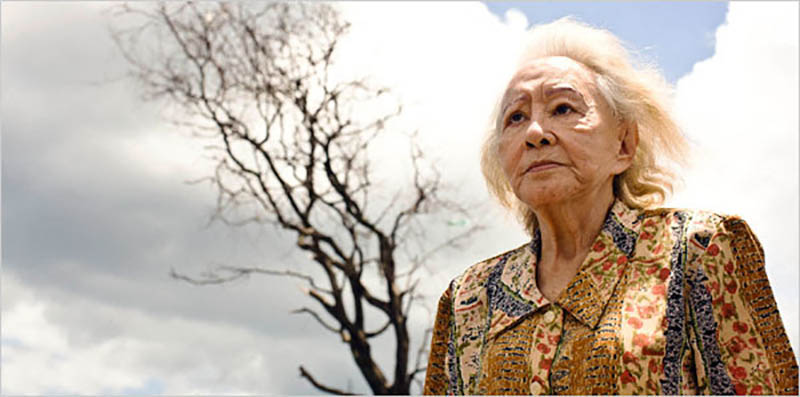Binging During Quarantine: Adela

In honor of the recent passing of veteran actress Anita Linda, we have chosen to binge on her award-winning 2008 film, Adela. Anita Linda received praise for her starring role in this film, and received Best Actress nominations and victories at the Cinemanila International Film Festival, Gawad Tanglaw Awards, and the Young Critics Circle Awards. Adela was just one of the many acclaimed films in Anita Linda’s wide and breathtaking oeuvre that spanned 8 decades and featured films such as Circa (2019), Tatlo, Dalawa, Isa (1974), Lola (2009), and Sister Stella L (1984).
Adela (2008)
Directed by Adolfo Borinaga Alix Jr.
Available on Amazon Prime and Vimeo on Demand
Adela, for all its brevity and simplicity, is a surprisingly exhausting film. The film contains a runtime of a little under an hour and a half and features a bare plot about a single day--the 80th birthday--of Adela, the titular lead character of the story. It says a lot about the director Adolfo Borinaga Alix Jr. and the film’s leading actress Anita Linda that a bare plot, filled with moments of quiet and inaction, can be so impactful and heavy. And, at the end, eerie and thought-provoking.
The film opens with a minor character--Mercy (Angeli Bayani) a young and pregnant woman--returning home early in the morning, to find her husband PJ (Jason Abalos) sleeping with another woman. Enraged, she screams at her husband and causes a scene, and while the neighbors surround them, she undergoes labor. Here, Adela, a former midwife, appears, carrying a bag of groceries, and helps Mercy deliver her baby successfully. In this scene, the camera shares a closeup glimpse of Adela, who brims with a warm sense of joy.
As a neighbouring kid helps Adela with her groceries, we discover that today is her birthday and she is expecting her children and grandchildren to visit. Her husband has passed, and Adela now lives alone with a home at a squatting community at a dumpsite. Her poverty--and a sense of subtle social critique--underlies the entire film. The problem of a lack of money remains ever-present through all the characters and their actions. Meanwhile, Adela engages in daily tasks, going to church, buying gifts for her grandchildren, and meeting countless people, past colleagues and various neighbors in their slum community. Surrounded by countless people, the loneliness of Adela’s life emerges.
Her birthday plans to see his children and grandchildren slowly break down when we discover that her daughter who works as a live-in house-helper has been forbidden by her boss to leave for Adela’s birthday. Meanwhile, one son of hers works abroad and another is in jail for an unnamed crime. She visits him for a brief conversation, then visits PJ’s celebration for his new child that Adela helped deliver. Here, she is surrounded by various acquaintances who drink and cheer. But as an octogenarian and removed from her loved ones, she is completely out of place. They sing karaoke and drink, but a sense of Adela’s lonely melancholy can’t help but be felt in these scenes.
These brief plot details are displayed through excellent filmmaking. Director Adolf Alix and cinematographer Albert Banzon portray Adela’s solitary universe with various wide-shots displaying the desolate landscape of her daily life. A steady camera glimpses through her conversations and provides a naturalistic, documentary-like approach. But more than anything, the sound design by Ditoy Aguila and Junel Valencia takes a starring role. From the radio voices and the karaoke to that chilling final scene, the sound design takes a lead role in determining the mood of the film. All these make for an entirely excellent film, well-deserved of all its praise.




